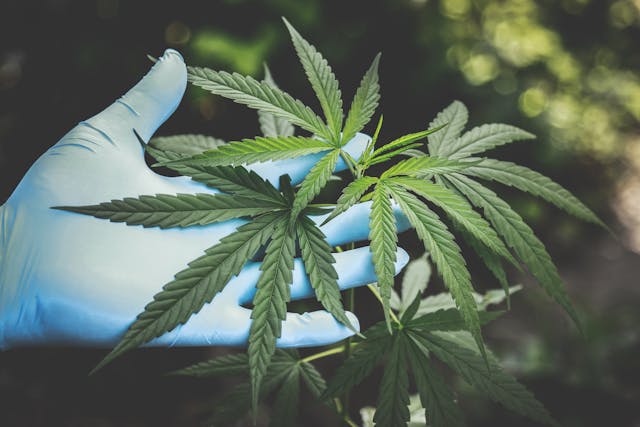Dozens of Kentucky hemp farmers are urging Republican U.S. Sen. Mitch McConnell not to “criminalize” the sale of products containing hemp-derived cannabinoids.
A letter from 58 hemp farmers in the state sent to McConnell on Monday requests an in-person meeting and warns of “immediate and catastrophic consequences” if legal hemp products are redefined under federal law as the senator has proposed, according to Louisville Public Media.
Tensions between McConnell, who played a key role in the initial legalization of hemp with the 2018 Farm Bill, and the hemp industry flared in July.
That was when McConnell added language to an agriculture spending bill that critics, including fellow Kentucky Republican Sen. Rand Paul, claimed would severely harm the industry.
McConnell proposed directing federal regulators to set a “quantifiable limit” for THC allowed in hemp-derived CBD products.
CBD products that contain no THC at all would remain legal.
Paul successfully removed the provision before the bill advanced three weeks later.
However, McConnell has vowed to try again. And last week, Paul voiced concerns of a “prohibitionist” push in Congress.
‘Immediate and catastrophic consequences’ to U.S., Kentucky hemp industries
Nearly 70% of U.S. hemp is grown for cannabinoid products, which anchor a $28.4 billion market, according to one estimate.
The hemp farmers’ letter sent this week calls on McConnell to not introduce similar measures in future legislation, emphasizing the potential impact on their livelihoods.
“If Congress moves to eliminate the end markets that make our crop viable, we will suffer immediate and catastrophic consequences,” the hemp farmers’ letter read in part, according to LPM.
“Any legislative change that pulls the rug out from under this market – especially mid-season – is a direct blow to our farms, families and rural communities.”
According to Paul, McConnell’s proposal would “completely destroy the American hemp industry” and ban the sale of CBD products.
The 2018 Farm Bill legalized hemp production nationwide but defined hemp as cannabis sativa with 0.3% THC or less by dry weight.
It also led to a proliferation of intoxicating hemp-derived THC products nationwide.
Read more at MIBizDaily







